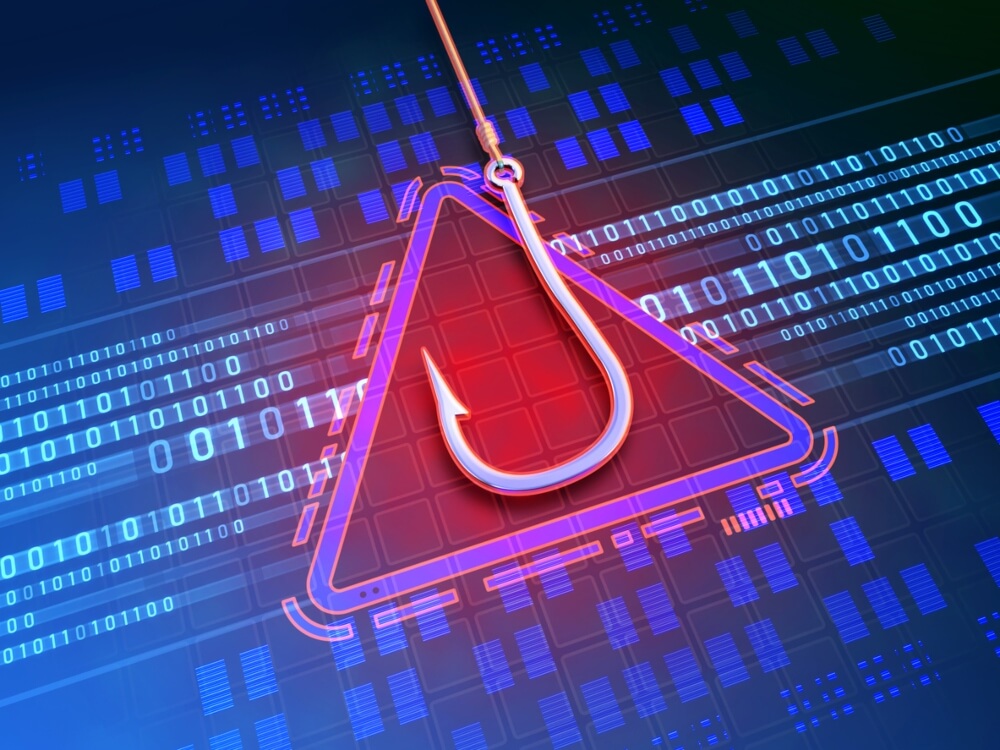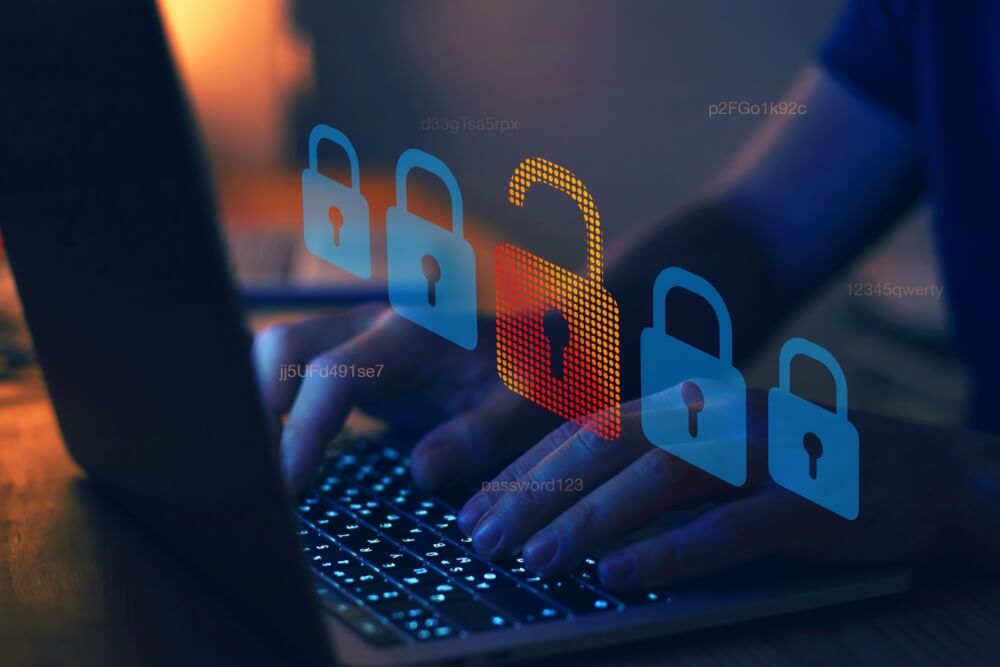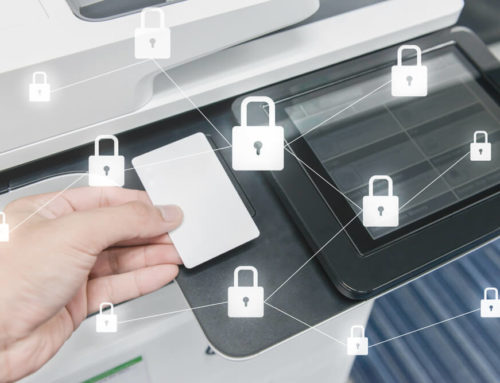Since business is increasingly conducted online, protecting your business from online threats is becoming steadily more important. In a study done in 2017, about 70% of businesses with an online presence stated that they felt their online security was at risk.
It’s clear that the importance of cybersecurity is at an all-time high, so if you feel weary of your own business’s online safety, know you are not alone. However, you may still have many questions, such as: What is cybersecurity, and how to protect yourself with cyber security?
What Cyber Security Is and The Importance of Cybersecurity
By definition, cybersecurity is a type of practice in which an internet user actively defends their computer, smartphone, or other online devices from threats or attacks by other users or viruses on the internet. Cybersecurity services are all the services that you can use to achieve protection. There are three types of cyber threats:
- Cybercrime, which involves internet users hacking, scamming, or performing other online acts to steal money from other individuals or businesses
- Cyber-attacks, which involve users infiltrating data on someone else’s device or online cloud to retrieve that data for themselves, often for political or competitive purposes
- Cyberterrorism, which involves users performing any cybercrime or cyber-attack to instill fear on other users
Cybersecurity is important because these types of threats and attacks can happen to all types of people, and business owners are no exception. Sometimes small businesses are a target just because hackers believe they will be easy to hack. Other times, moderate to larger businesses are a target because they potentially have tons of information to infiltrate.
For example, hackers once took down the online platform Yahoo. They took information from all 3 billion customers to the site, costing the company around $350 million to repair security leaks after the fact.
If you have a business with any online presence, you are at risk for cybersecurity breaches. Hackers target medical institutions to access thousands or millions of medical records, putting the institution in legal trouble for violation of HIPAA (the Health Insurance Portability and Accountability Act) laws. For online retailers, hackers may target transactions and conduct forms of cybercrime to reap your finances for themselves. Only by using a form of cybersecurity solutions can you prevent these breaches.

The Forms of Cyber Threats and Levels of Cyber Security
Within the three types of cyber threats are a vast number of methods cyber-attackers use to possibly affect your business. The most common forms faced by business owners are:
- Malware, meaning malicious software. This can include viruses, Trojans, spyware, and botnets, among many others. All forms of malware almost always work the same, though, in that they infiltrate your device, or devices, by an attacker without you even knowing it, and then the malware will send back information from your device to the attacker.
- Structured Language Query Injections (SLQ) is a form of hacking on websites and databases to retrieve confidential information by searching the websites or databases with carefully worded coding. For example, some attackers use SQL injections to log in to online accounts without even needing that account’s password.
- Phishing involves attackers sending companies emails or other online messages posing as other companies or customers to ask for sensitive information. For example, an attacker could send a business owner an email pretending to be a customer who recently bought an item and then ask to “remember” the credit card information they used to make the purchase to steal the real customer’s information.
There are also a few different levels of cybersecurity that business owners can implement to protect themselves from the above threats, such as:
- Application security is a security level that protects applications or programs on a device from malware attacks. Some applications will have some level of security built-in themselves to prevent such attacks, but devices can also find protection with downloadable antivirus software.
- Informational security, another one of the levels of cybersecurity which describes the protection of sensitive information on any device connected to the internet. Some businesses choose to store their vital information in a secure place that is not directly connected to the internet. Of course, this can work by storing vital files on simple paper in cabinets. Still, businesses can also use the intranet, which is a network that only individuals within the company can access. This secures information from the public internet and keeps attackers out of the picture.
- Operational security, which relates to information security, includes protocols a company has for who can access certain information. This could mean that only the business owner at a small business or certain executives at a larger company has credentials to access sensitive information so that lower-level employees can’t leak anything.
- Network security, which encompasses all the ways a business can protect itself over the public internet. This includes using VPNs (virtual private networks) and/or other programs that help encrypt data that your device sends and retrieves from a wireless network, like Wi-Fi. One way hackers can get into someone else’s device is over public Wi-Fi, so if a business employee connects to a public Wi-Fi network, such as at a library or hotel, to conduct online business activity, a hacker can attack that employee and retrieve data from his or her device; using VPNs or other network security methods will prevent this.
How Can You Be Fully Protected With Cyber Security Services?
Along with downloading and implementing reliable cyber security services or contacting a reliable service provider about cybersecurity solutions on all your company’s devices, there are a few extra steps you can take to keep your online workplace safe. Remember, we emphasize the importance of cybersecurity most for businesses, but you can use these tips for your own individual use, too. Many of these include educating yourself and your employees about avoiding cyber-attacks, such as:
- Creating a disaster recovery plan means planning out how your company will respond if a cyber-attack occurs. If the data of your customers become infiltrated, consider creating a team of employees that will reach out to these customers after possible disaster strikes. If a hacker steals your company’s finances, make a plan to report the online criminal activity to law enforcement and an online criminal investigation agency, like the U.S. Federal Bureau of Investigation, to prevent further attacks from occurring to other businesses or individuals.
- Learning good security practices that can stop attacks before they happen. For example, recognize when emails look suspicious or when internet pop-ups try to make your computer download unidentified programs. Above all, antivirus programs can stop malware from infecting your devices, but they can’t stop you from giving your information to other users yourself, so always double-check who you share data with online.
Did you learn new info on cybersecurity from us today? Or, perhaps, you’re interested in learning more about getting your business protected from online threats? If so, you can contact us today for help on how to download protective software for your company devices and how to protect your business network from outside attackers.
Since business is increasingly conducted online, protecting your business from online threats is becoming steadily more important. In a study done in 2017, about 70% of businesses with an online presence stated that they felt their online security was at risk.
It’s clear that the importance of cybersecurity services is at an all-time high, so if you feel weary of your own business’s online safety, know you are not alone. However, you may still have many questions, such as: What is cybersecurity, and how can you use cybersecurity services and cybersecurity solutions to protect yourself?
What Cyber Security Is and The Importance of Cybersecurity
By definition, cybersecurity is a type of practice in which an internet user actively defends their computer, smartphone, or other online devices from threats or attacks by other users or viruses on the internet. Cybersecurity services are all the services that you can use to achieve protection. There are three types of cyber threats:
- Cybercrime, which involves internet users hacking, scamming, or performing other online acts to steal money from other individuals or businesses
- Cyber-attacks, which involve users infiltrating data on someone else’s device or online cloud to retrieve that data for themselves, often for political or competitive purposes
- Cyberterrorism, which involves users performing any cybercrime or cyber-attack to instill fear on other users
Cybersecurity is important because these types of threats and attacks can happen to all types of people, and business owners are no exception. Sometimes small businesses are a target just because hackers believe they will be easy to hack. Other times, moderate to larger businesses are a target because they potentially have tons of information to infiltrate.
For example, hackers once took down the online platform Yahoo. They took information from all 3 billion customers to the site, costing the company around $350 million to repair security leaks after the fact.
If you have a business with any online presence, you are at risk for cybersecurity breaches. Hackers target medical institutions to access thousands or millions of medical records, putting the institution in legal trouble for violation of HIPAA (the Health Insurance Portability and Accountability Act) laws. For online retailers, hackers may target transactions and conduct forms of cybercrime to reap your finances for themselves. Only by using a form of cybersecurity solutions can you prevent these breaches.
The Forms of Cyber Threats and Levels of Cyber Security
Within the three types of cyber threats are a vast number of methods cyber-attackers use to possibly affect your business. The most common forms faced by business owners are:
- Malware, meaning malicious software. This can include viruses, Trojans, spyware, and botnets, among many others. All forms of malware almost always work the same, though, in that they infiltrate your device, or devices, by an attacker without you even knowing it, and then the malware will send back information from your device to the attacker.
- Structured Language Query Injections (SLQ) is a form of hacking on websites and databases to retrieve confidential information by searching the websites or databases with carefully worded coding. For example, some attackers use SQL injections to log in to online accounts without even needing that account’s password.
- Phishing involves attackers sending companies emails or other online messages posing as other companies or customers to ask for sensitive information. For example, an attacker could send a business owner an email pretending to be a customer who recently bought an item and then ask to “remember” the credit card information they used to make the purchase to steal the real customer’s information.
There are also a few different levels of cybersecurity that business owners can implement to protect themselves from the above threats, such as:
- Application security is a security level that protects applications or programs on a device from malware attacks. Some applications will have some level of security built-in themselves to prevent such attacks, but devices can also find protection with downloadable antivirus software.
- Informational security, another one of the levels of cybersecurity which describes the protection of sensitive information on any device connected to the internet. Some businesses choose to store their vital information in a secure place that is not directly connected to the internet. Of course, this can work by storing vital files on simple paper in cabinets. Still, businesses can also use the intranet, which is a network that only individuals within the company can access. This secures information from the public internet and keeps attackers out of the picture.
- Operational security, which relates to information security, includes protocols a company has for who can access certain information. This could mean that only the business owner at a small business or certain executives at a larger company has credentials to access sensitive information so that lower-level employees can’t leak anything.
- Network security, which encompasses all the ways a business can protect itself over the public internet. This includes using VPNs (virtual private networks) and/or other programs that help encrypt data that your device sends and retrieves from a wireless network, like Wi-Fi. One way hackers can get into someone else’s device is over public Wi-Fi, so if a business employee connects to a public Wi-Fi network, such as at a library or hotel, to conduct online business activity, a hacker can attack that employee and retrieve data from his or her device; using VPNs or other network security methods will prevent this.

How Can You Be Fully Protected With Cyber Security Services?
Along with downloading and implementing reliable cybersecurity services or contacting a reliable service provider about cybersecurity solutions on all your company’s devices, there are a few extra steps you can take to keep your online workplace safe. Remember, we emphasize the importance of cybersecurity most for businesses, but you can use these tips for your own individual use, too. Many of these include educating yourself and your employees about avoiding cyber-attacks, such as:
- Creating a disaster recovery plan means planning out how your company will respond if a cyber-attack occurs. If the data of your customers become infiltrated, consider creating a team of employees that will reach out to these customers after possible disaster strikes. If a hacker steals your company’s finances, make a plan to report the online criminal activity to law enforcement and an online criminal investigation agency, like the U.S. Federal Bureau of Investigation, to prevent further attacks from occurring to other businesses or individuals.
- Learning good security practices that can stop attacks before they happen. For example, recognize when emails look suspicious or when internet pop-ups try to make your computer download unidentified programs. Above all, antivirus programs can stop malware from infecting your devices, but they can’t stop you from giving your information to other users yourself, so always double-check who you share data with online.
Did you learn new info on cybersecurity from us today? Or, perhaps, you’re interested in learning more about getting your business protected from online threats? If so, you can contact us today for help on how to download protective software for your company devices and how to protect your business network from outside attackers.





